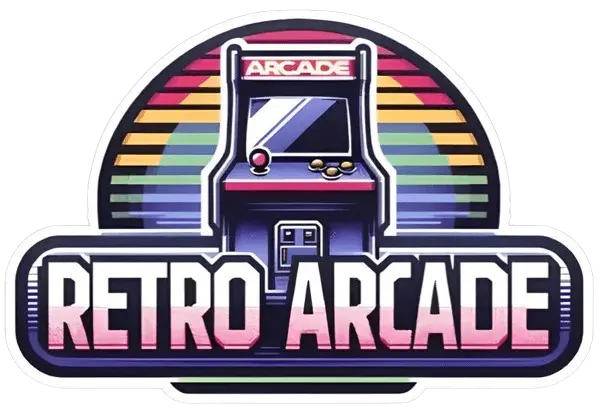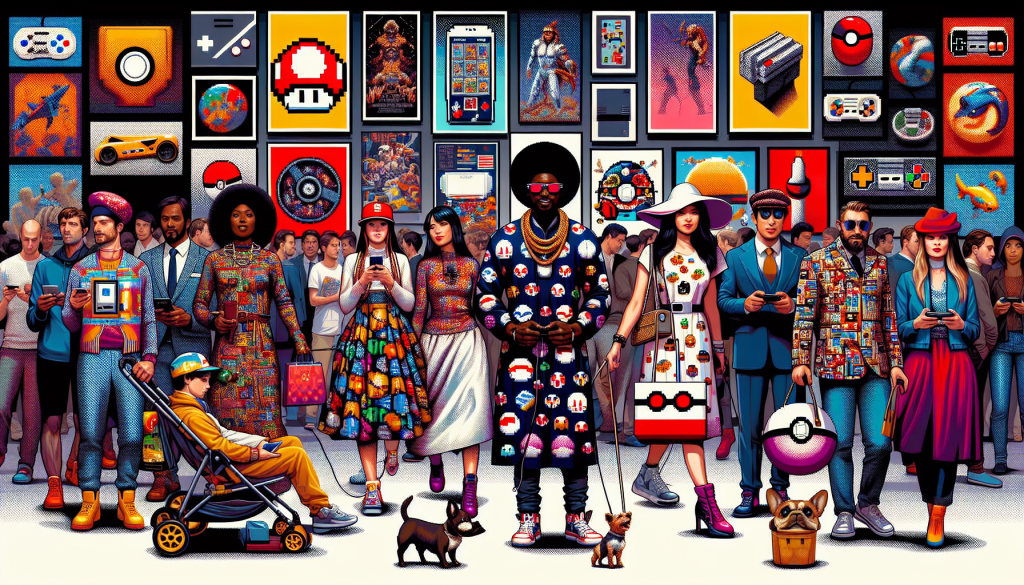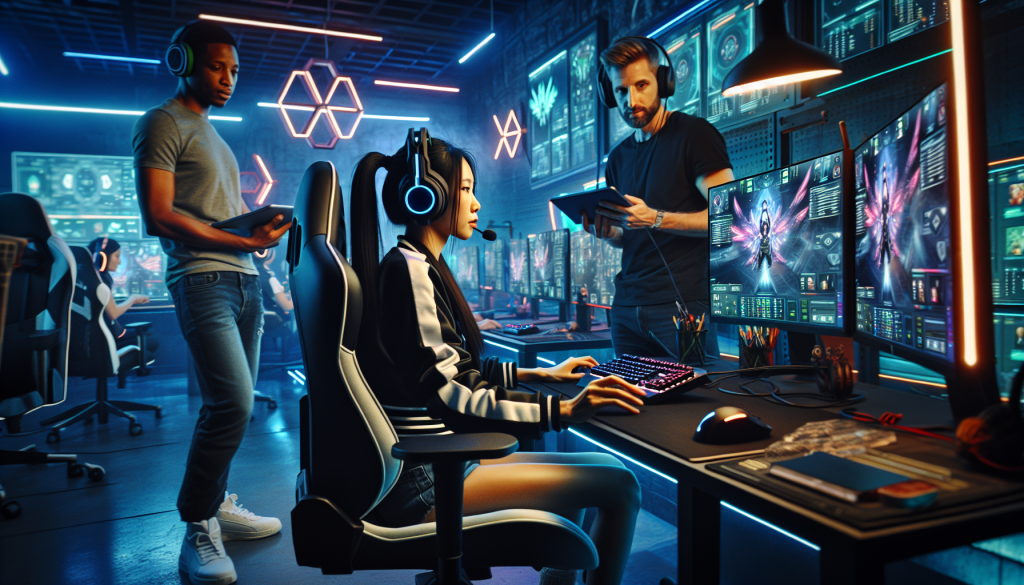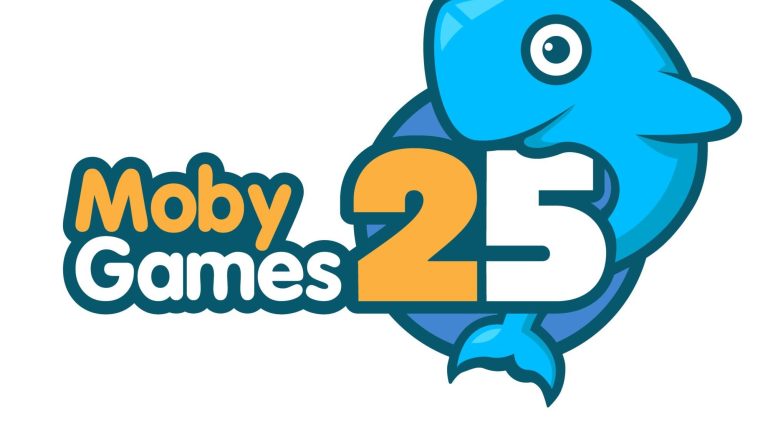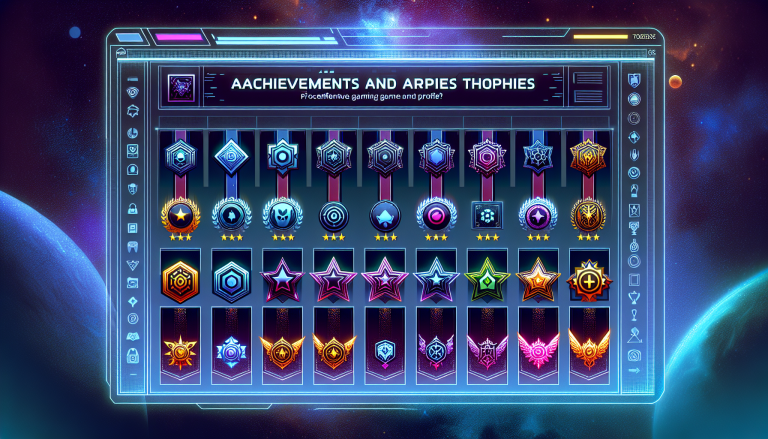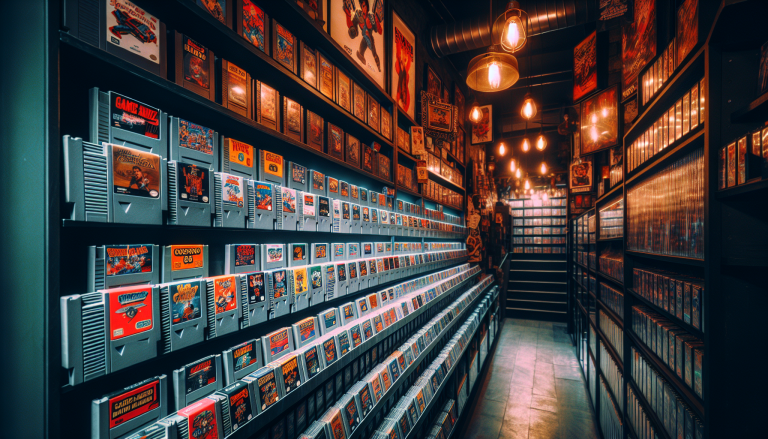Ah, Comic Con 2023, a true haven for all things nerdy and geeky. From the latest superhero movies to the most innovative video games, this event never fails to excite and entertain. But this year, there’s a special treat in store for all the gaming enthusiasts out there – a retro gaming bonanza!
That’s right, folks! Comic Con 2023 is going old-school and bringing back the classics. From Atari to Nintendo, Sega to PlayStation, get ready to step back in time and relive the golden age of gaming. Dust off your controllers and prepare for a nostalgia trip like no other!
However, amidst all the excitement, there are concerns among fans about the availability of classic games. Will we be able to experience the joy of playing Super Mario Bros. or Sonic the Hedgehog once again? Or will these beloved games be lost to time?
Preserving digital gaming heritage is essential to ensure that future generations can experience the magic of retro gaming. These games hold immense cultural value and have shaped the gaming industry as we know it today. It’s important that we take steps to safeguard and cherish these treasures.
So, how can we ensure that future generations can enjoy the wonders of retro gaming? Here are a few suggestions:
1. Embrace Emulators and Virtual Consoles
Emulators and virtual consoles have become a lifeline for retro gamers. They allow us to play classic games on modern devices, bridging the gap between the past and the present. Whether it’s through official releases like the Nintendo Switch Online service or community-driven projects, like RetroArch, there are plenty of options available to satisfy your retro gaming cravings.
Not only do emulators and virtual consoles provide easy access to classic games, but they also preserve the original gaming experience. With the ability to save and load states, players can pick up where they left off without worrying about losing progress. It’s a win-win situation!
2. Support Retro Gaming Preservation Efforts
Various organizations and individuals are dedicated to preserving the history of gaming. By supporting these efforts, we can contribute to the preservation of classic games and consoles. Whether it’s through donations, volunteering, or spreading awareness, every little bit helps.
Additionally, attending events like Comic Con 2023 and participating in retro gaming panels and workshops can help educate others about the importance of preserving gaming heritage. Sharing our love for retro games and encouraging others to do the same is a powerful way to ensure that these games continue to be cherished for generations to come.
3. Explore Physical Retro Gaming Stores
While digital preservation is crucial, there’s something special about holding a physical copy of a classic game in your hands. Exploring retro gaming stores can be a delightful experience, allowing you to discover hidden gems and connect with fellow retro gaming enthusiasts.
Whether you’re looking for a rare cartridge for your collection or simply want to browse through shelves filled with gaming history, these physical stores offer a unique and tangible way to experience retro gaming. Plus, supporting local businesses in the process is an added bonus!
4. Share the Joy of Retro Gaming
One of the best ways to ensure the longevity of retro gaming is to share it with others. Introduce your friends, family, and younger generations to the magic of classic games. Host game nights, organize gaming tournaments, or simply have fun reminiscing about your favorite gaming memories.
By passing on the joy and nostalgia of retro gaming, we can create a community that appreciates and values these timeless classics. Who knows, you might inspire the next generation of game developers and designers!
Concerns over the Unavailability of Classic Games
Ah, classic games! They hold a special place in the hearts of many gaming enthusiasts. Whether it’s the pixelated graphics of Pac-Man, the high-speed action of Sonic the Hedgehog, or the nostalgic adventures of Super Mario, these games have left an indelible mark on the gaming industry. However, there is a growing concern among fans about the increasing unavailability of these retro gems.
One of the biggest challenges is the rapid advancement of technology. As new gaming consoles and platforms emerge, older games often become incompatible or difficult to access. Many classic games were designed for outdated systems like the Atari 2600 or the original Nintendo Entertainment System (NES), making it harder for modern gamers to experience them.
Another issue is the preservation of older game cartridges and disks. These physical copies can deteriorate over time, rendering them unplayable. Moreover, as technology progresses, it becomes harder to find compatible hardware to run these games. This scarcity of physical copies has driven up prices in the retro gaming market, making it even more challenging for enthusiasts to get their hands on these beloved titles.
Furthermore, the rise of digital distribution has revolutionized the gaming industry. While it has made access to modern games more convenient, it has also caused many classic games to be overlooked or forgotten. With limited storage capacity on digital platforms, publishers often prioritize newer releases, leaving little room for retro games. This lack of availability restricts the opportunity for younger generations to experience the joy of playing these timeless classics.
So, what can be done to address these concerns and ensure that future generations can appreciate retro gaming? One solution is the preservation of digital gaming heritage. Organizations such as the Video Game History Foundation and the Internet Archive have taken up the noble task of archiving and preserving classic games. By digitizing and cataloging these games, they ensure that they are not lost to time and can be enjoyed by gamers of all ages.
Additionally, game developers and publishers can play a crucial role in promoting retro gaming. They can re-release classic titles on modern platforms or create compilation collections that include a variety of beloved games. By making these games easily accessible, they can introduce new players to the wonders of retro gaming and reignite the passion of long-time fans.
As gamers, we also have a responsibility to keep the spirit of retro gaming alive. We can support retro gaming conventions, like Comic Con 2023, where enthusiasts gather to celebrate the classics. These events provide an opportunity to not only play retro games but also engage in discussions, panels, and workshops on the preservation and appreciation of gaming history.
In conclusion, the concerns over the unavailability of classic games are valid and need to be addressed. Preserving digital gaming heritage and ensuring access to retro games for future generations is essential. By supporting organizations that preserve gaming history, encouraging game developers to re-release classic titles, and actively participating in retro gaming events, we can keep the magic of retro gaming alive for years to come.
Preserving Digital Gaming Heritage
Gaming has come a long way since the early days of Pong and Space Invaders. Those classic games, once the pride and joy of many gamers, are now considered relics of a bygone era. However, as technology advances and new games take center stage, there is a growing concern about the preservation of our digital gaming heritage.
Imagine a world where future generations have no access to the games that shaped the industry we know and love today. It’s a sad thought, but one that could become a reality if we don’t take action to preserve these games.
Preserving digital gaming heritage is about more than just nostalgia. It’s about recognizing the cultural and historical significance of these games and ensuring that they are accessible to all. Just as we preserve old books and films, we should also preserve classic video games.
The Challenges of Preserving Digital Games
Preserving digital games presents unique challenges compared to other forms of media. Unlike physical books or films, video games are tied to specific hardware and software platforms. As technology evolves, old hardware becomes obsolete, making it increasingly difficult to play these games.
Another challenge is the fact that many classic games are no longer available for purchase. Licensing issues, company closures, and the passage of time have led to the disappearance of many beloved games from store shelves. This scarcity makes it even more important to preserve the games that remain.
The Role of Emulation and Preservation Efforts
Emulation has emerged as a crucial tool in preserving digital gaming heritage. Emulators allow us to play old games on modern hardware, keeping the games alive and accessible. By mimicking the original hardware and software environment, emulators ensure that future generations can experience these classic games as they were intended.
Preservation efforts go beyond emulation. Archives and museums dedicated to video game history are working tirelessly to acquire and preserve physical copies of games, consoles, and other gaming artifacts. These institutions serve as custodians of our digital gaming heritage, ensuring that it is not lost to time.
How You Can Help
Preserving digital gaming heritage is a collective effort, and there are ways for everyone to get involved:
- Support preservation organizations: Donate to and volunteer for organizations dedicated to the preservation of video game history. They rely on the support of enthusiasts to continue their important work.
- Share your knowledge: If you have rare or valuable gaming artifacts, consider sharing them with a museum or archive. Your contribution can help ensure that future generations can learn from and appreciate the history of video games.
- Advocate for legal emulation: Emulation can be a legal gray area, and laws regarding it vary from country to country. Stay informed and support efforts to make legal emulation more accessible.
- Document and record: If you have personal stories or experiences related to classic games, share them online or with preservation organizations. Oral histories and personal accounts add valuable context to the preservation of gaming history.
Preserving digital gaming heritage is a responsibility we all share. By working together, we can ensure that future generations have the opportunity to experience the games that shaped our industry and continue to inspire new innovations. Let’s keep the digital gaming flame burning bright!
Ensuring Future Generations Can Experience Retro Gaming
As we dive deeper into the digital age, it is essential that we not only preserve our gaming past but also ensure that future generations have the opportunity to experience the magic of retro gaming. With the rapid advancement of technology, older games can quickly become obsolete, making it challenging for enthusiasts to find and play these classic titles.
So, how can we ensure that future generations can enjoy the nostalgic joy of retro gaming? Here are a few suggestions:
1. Embrace Emulation
One way to keep retro gaming alive is through emulation. Emulation software allows you to play games from older consoles on your computer or other devices. This technology enables you to experience classic titles without the need for physical hardware, making it more accessible to everyone.
However, it’s important to note that emulation should be used responsibly. Make sure to only emulate games that are in the public domain or that you own legally. Respect the rights of game developers and publishers, as they deserve recognition and compensation for their creations.
2. Support Retro Gaming Conventions
Attending gaming conventions, such as Comic Con, that focus on retro gaming can help keep the love for classic games alive. These events often feature retro gaming zones where you can play vintage titles and connect with fellow enthusiasts. By supporting these conventions, you contribute to the preservation and celebration of gaming history.
Keep an eye out for upcoming retro gaming conventions in your area and make it a point to attend. It’s a fantastic opportunity to relive your favorite childhood memories and introduce future generations to the games that shaped the industry.
3. Encourage Game Preservation Efforts
Preserving gaming history is crucial in ensuring that future generations have access to classic games. Many organizations and individuals dedicate their time and resources to curating and archiving gaming artifacts, including game cartridges, consoles, and related memorabilia.
If you come across any initiatives or projects aimed at preserving gaming history, consider supporting them. Whether it’s through donations, sharing information, or volunteering, every contribution helps in safeguarding the legacy of retro gaming.
4. Share Your Knowledge
If you grew up playing retro games or have a deep appreciation for them, share your knowledge and passion with others. Start a blog, create YouTube videos, or engage in online communities dedicated to retro gaming. By sharing your experiences, recommendations, and insights, you can introduce a whole new generation to the wonders of classic games.
Additionally, encourage younger gamers to explore the gaming roots by recommending retro games and discussing their historical significance. By fostering an appreciation for the classics, we can ensure that future generations understand and respect the evolution of the gaming industry.
Remember, the joy of retro gaming should not be limited to just one generation. By embracing emulation, supporting retro gaming conventions, encouraging preservation efforts, and sharing our knowledge, we can keep the magic of classic games alive for years to come.
